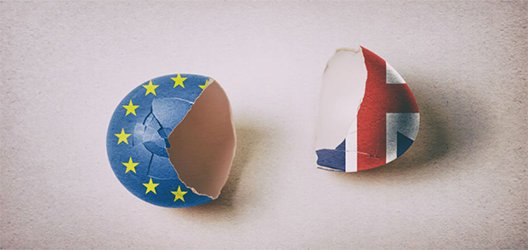27 Jul 2018
"Adequate food supplies" after Brexit could mean higher prices, more congestion and increased food crime, warns Loughborough supply chain expert
The UK Brexit secretary Dominic Raab has said that steps might have to be taken to ensure that there are “adequate food supplies” for Britain should there be a no deal scenario with the European Union.
Earlier this week, he told the Brexit select committee that the Government would need to work with the food industry to ensure supplies of every day produce – mainly meat, vegetables and dairy – were not disrupted.
However, Loughborough University’s Dr Alok Choudhary, a reader in supply chain management, said there could be multiple issues arising out of finding food from alternative sources in such a small space of time.
He said: “If Brexit No deal happens then food supply chain will be disrupted, which may lead to inadequate food supply, excessive food loss, high price for foods, more congestion on roads and increase in food crime.
“Fifty percent of Britain’s food is imported, and of that 60 percent comes from the EU.
“A number of agri-food companies including the debate in parliament indicate that the preparation has started for the No Deal Brexit.
“No deal may lead to new border controls and multiple ‘non-tariff barriers’, through regulatory checks, that will create delays, waste and failed food deliveries to the market.
“As a result of these, UK Ports which deal with approx. 50,000 tonnes of food per day will be congested, delayed and some will be at risk of waste (e.g. rotted at the port).
“No Deal may lead to Food Supply Chain Disruption leading to increased food prices, lowering safety and welfare standards, food shortages and worsening a public health crisis in the UK.
“This will also lead to less choice and quality of food for the consumers.
“There have been some efforts made by the leading retailers but uncertainty at both supply (farmers now knowing whom they will be supplying) and demand side (not knowing how Brexit will end up) is creating a major risk to the UK’s fragile food supply chain.”















